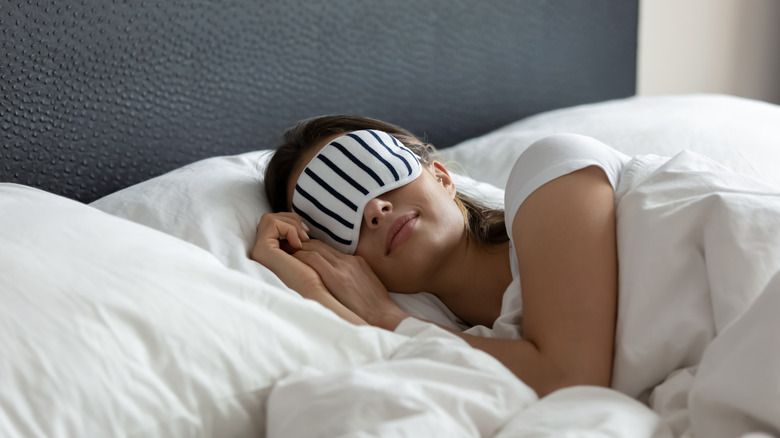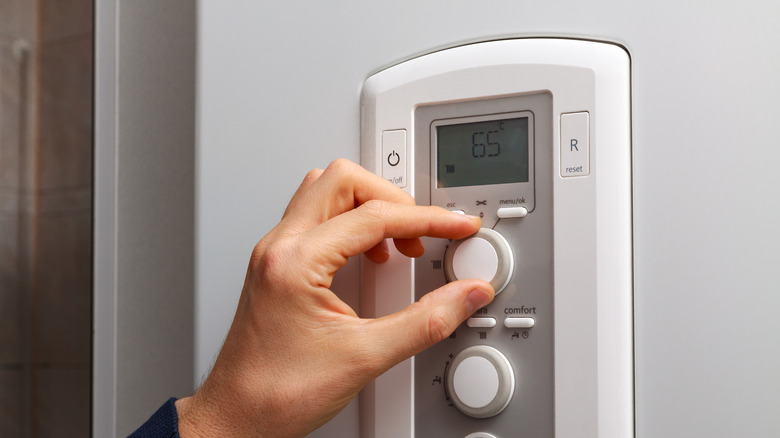Why Sleeping In A Cold Room Is Better For Your Health
Getting a good night's sleep is important for, well, basically everything. Getting enough deeply restful sleep — meaning seven to nine hours a night for most adults — is vital not just for optimum mental and emotional function, but for physical health too. Poor sleep patterns are linked with a host of maladies including heart disease, diabetes, and even weight gain (via Verywell Health).
While there are multiple factors that go into creating the ideal circumstances leading to a great night's sleep, there's a less-than-obvious one that just might make a big difference: room temperature.
When we settle down to get to sleep for the night, our bodies naturally want to shift to a cooler internal temperature. Our skin's blood vessels dilate, radiating heat and effectively cooling us off. H. Craig Heller, Ph.D., professor of biology at Stanford University, explains "When you go to sleep, your set point for body temperature — the temperature your brain is trying to achieve — goes down. Think of it as the internal thermostat" (via WebMD). If the bedroom temperature is too warm, it makes this harder to do.
Keeping it cool can help you sleep
The drop in body temperature when we lie down is actually an important trigger that induces sleep. That's why most sleep experts agree that keeping the bedroom temperature on the cool side — between 60 and 67 degrees Fahrenheit on average — is the best for sound sleep. Ajay C. Sampat, M.D., assistant clinical professor of neurology and sleep medicine at the University of California Davis Health, told SELF, "In general, keeping a cooler room is helpful because your body's natural core temperature decreases throughout sleep. If you have a cooler environment, that facilitates that transition."
There are, of course, other factors that also contribute to creating an optimum sleep environment. Light, noise, alcohol and caffeine, and the use of technology all play a role. (TV in your room? Sorry, not a great idea).
But room temperature is a big one. As Dr. Dasgupta suggests we remember, "When you [lie] down, your body cools down, and when you wake up, your body warms up." If you've been used to a warm bedroom, setting the thermostat a little lower can help make getting to sleep a little easier.


